Judging by the current situation, BTC reached the peak of its bullish impulse. The price climbed to $25,000. Notably, earlier, the asset hit this level even amid falling trading volume. A row of unconfident Doji candlesticks formed just after the price reached a new local high points to the fact that bulls cannot push the price higher. There are fundamental and technical reasons for that.
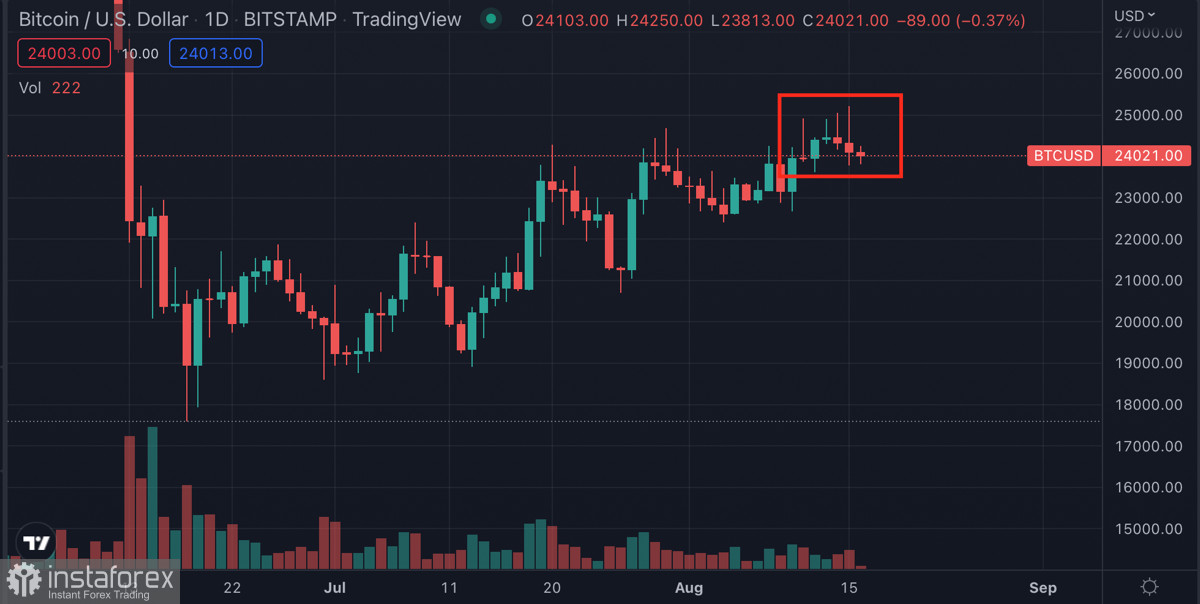
Let us first focus on the factors which directly depend on the cryptocurrency. In the last week, bullish sentiment became weak and some investors began locking in profits near the level of $25,000. This points to a short-term hope for a rise in the asset and speculative interest. High activity of short-term traders as well as positive news, which supported the asset during the last few weeks, created an illusion of an uptrend based on fundamental factors. However, it is not true. Firstly, when BTC reached a local high, we saw an outflow of funds. It is an obvious divergence that proves an artificial rise in the cryptocurrency.
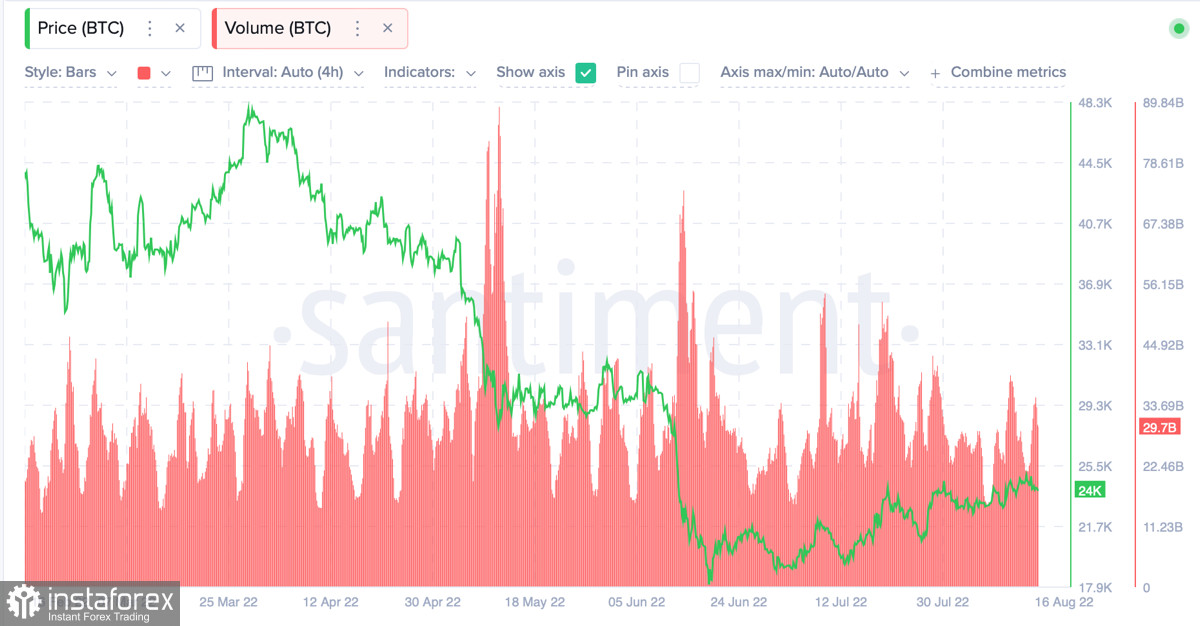
Apart from that, indicators of trading activity have stagnated. Investment activity remains at the level of $27-$30 billion, which is below average. If the daily trading volume declines or does not change amid the price increase, this means that there are no fundamental factors that can boost the asset. In the event of bitcoin, fundamental factors were replaced by fundamental news and activity of short-term traders who used big leverages. Notably, the cryptocurrency is always under pressure exerted by miners, who continue selling BTC.
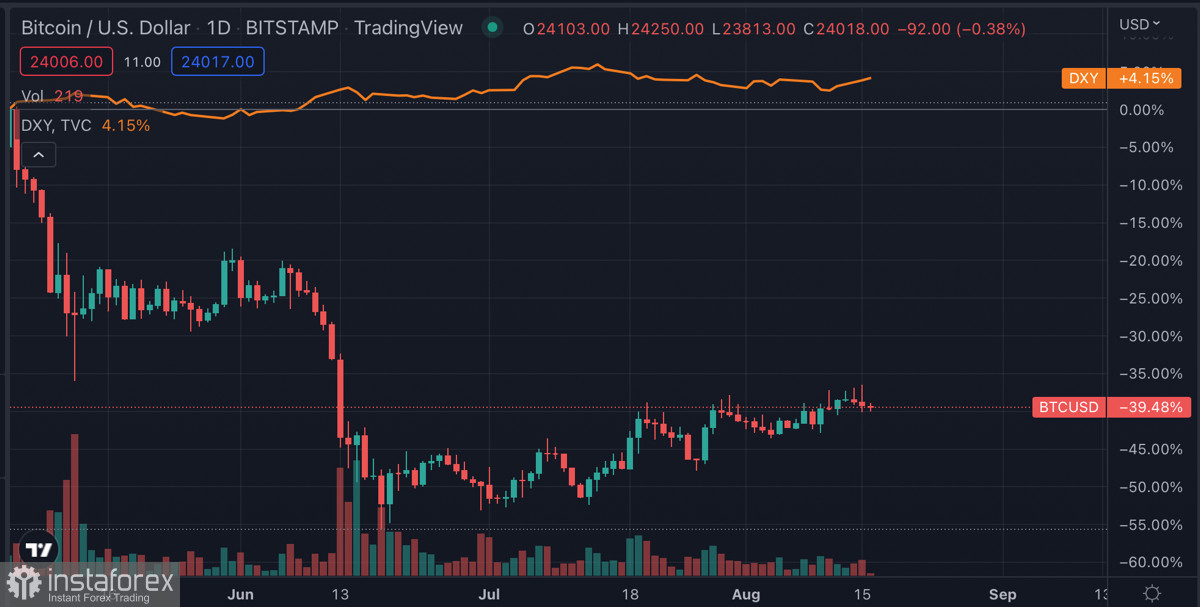
The US dollar index is the main fundamental factor that reflects the end of a rise in BTC. The indicator finished the correction and resumed climbing. As a result, it jumped to 106. The US dollar index has been increasing for the last few days. This directly depends on weaker interest in BTC. The news about lower inflation affected the US dollar index more than BTC. Given the inverse correlation of the financial instruments, we should expect a drop in BTC and a new high in DXY.
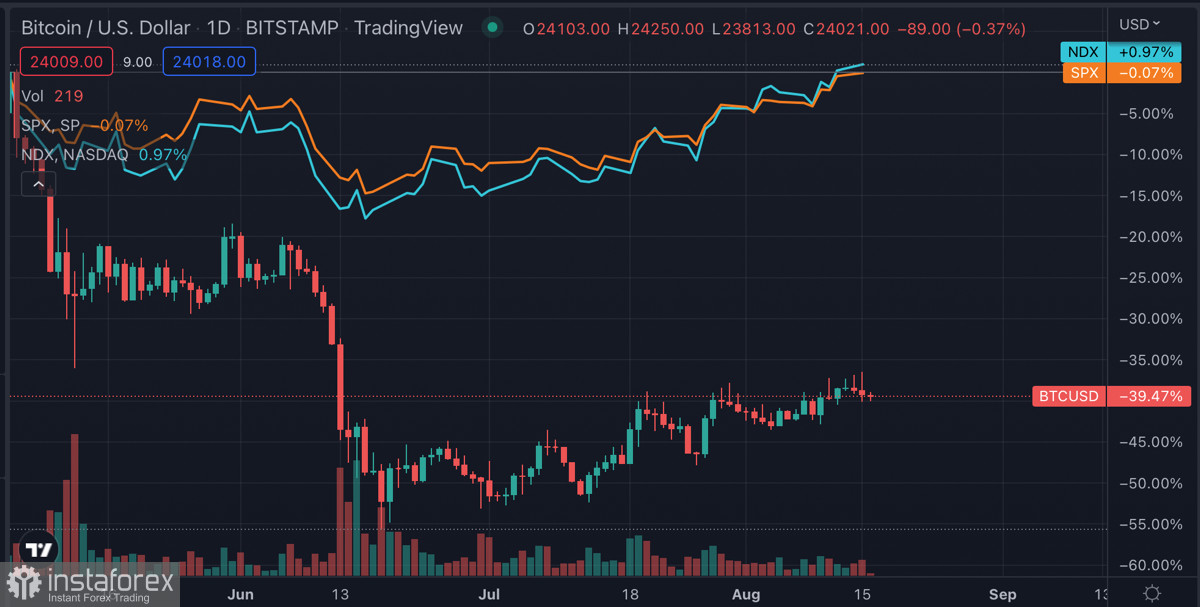
Lower correlation between BTC and stock indices once more proves the absence of fundamental factors that may boost BTC. The SPX index consolidated above $4,200 and continues rising. After the stock market reached a local bottom, it became more attractive for investors, which allowed indices to hit new local highs. This has a direct influence on the correlation between BTC and stock indices. On the one hand, such a situation makes BTC less dependent. However, under the current conditions, high correlation might have allowed BTC to break $25,000.
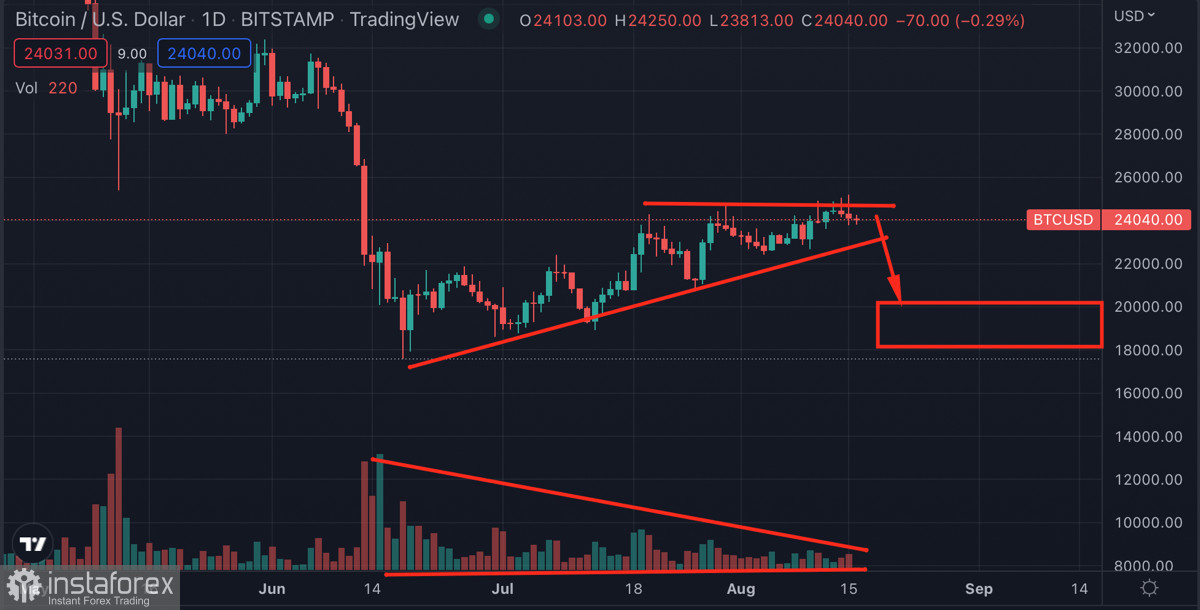
Since the trading volume is falling, the asset is likely to decline to $20,000-$22,000 to gain liquidity necessary for a further rise. After reaching the local low, the market did not show the needed trading volumes. That is why BTC will have to slide to $20,000 or even lower. Otherwise, the current liquidity will not be enough to push the price higher and the asset will continue hovering near the lower limit of the range. Thus, in the near future, BTC is likely to lose value to trade at $20,000 to gain liquidity and consolidate.
 English
English 
 Русский
Русский Bahasa Indonesia
Bahasa Indonesia Bahasa Malay
Bahasa Malay ไทย
ไทย Español
Español Deutsch
Deutsch Български
Български Français
Français Tiếng Việt
Tiếng Việt 中文
中文 বাংলা
বাংলা हिन्दी
हिन्दी Čeština
Čeština Українська
Українська Română
Română

